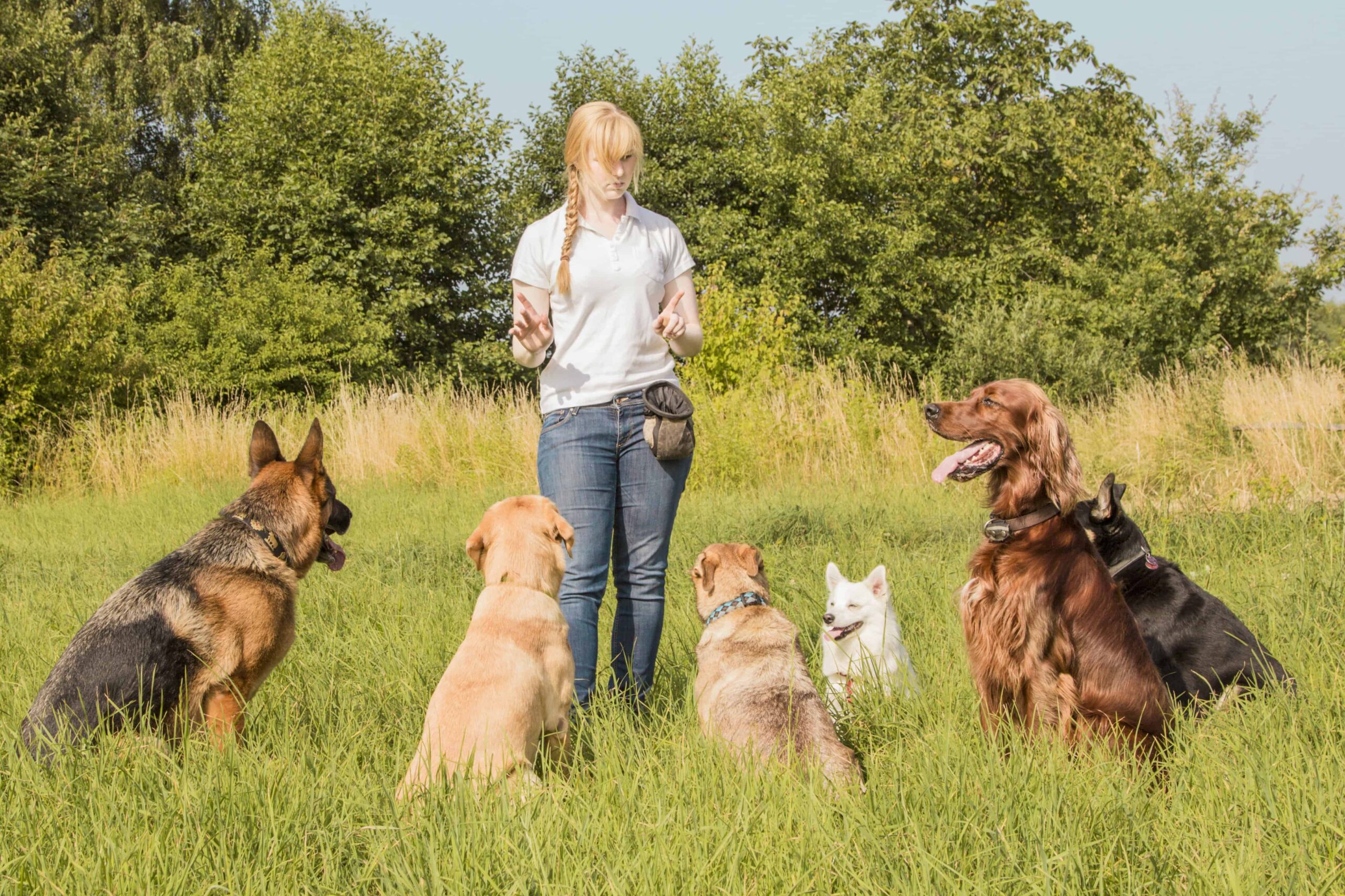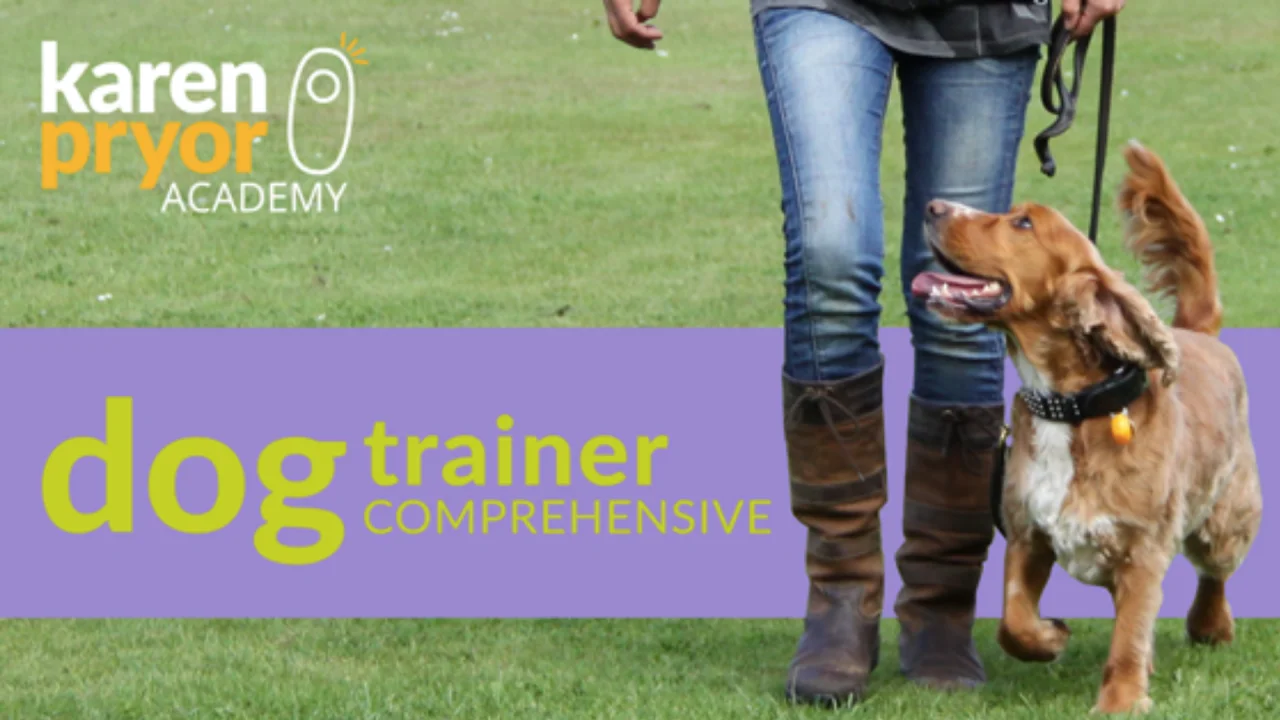Checking Out Choices for Dog Training Charlotte: What You Need to Know
Checking Out Choices for Dog Training Charlotte: What You Need to Know
Blog Article
Transform Your Dog With Professional Dog Educating Tips and Techniques
Reliable canine training is an essential component in supporting a obedient and courteous friend. Comprehending the nuances of canine habits, including their body movement and second-nature drives, permits a much more tailored training method that cultivates better interaction and trust. By carrying out key strategies such as consistency and favorable support, pet dog owners can navigate typical challenges that emerge during the training process. Nonetheless, the journey does not end there; the details of building a solid bond with your pet can substantially impact the training results. What are one of the most reliable strategies to make sure long lasting success?
Understanding Canine Behavior
Exactly how can comprehending canine habits improve the training process? A comprehensive grasp of canine behavior is fundamental for effective training. Dogs communicate through body language, vocalizations, and even faces. By interpreting these signals, trainers can tailor their approach to satisfy the certain requirements of each canine, fostering a more efficient training setting.
Identifying indications of stress, concern, or enjoyment permits instructors to readjust methods, ensuring that the dog stays involved and going to learn. As an example, if a canine shows signs of anxiousness during a training session, it might be required to change the setting or speed to reduce discomfort.
Furthermore, comprehending the all-natural impulses and social structures of canines can educate training strategies. For example, recognizing that pet dogs are pack animals helps fitness instructors include socialization and teamwork right into their sessions.

Vital Training Techniques
Effective canine training depends on a variety of important techniques that develop clear interaction in between the pet dog and the fitness instructor. These methods are fundamental and offer to produce a structured environment for finding out.
Among one of the most efficient methods is consistency. A regular technique makes sure that the pet dog understands assumptions and can prepare for feedbacks. Making use of a set of standardized commands and cues is crucial; this stops confusion and fosters a reputable communication network.
Timing is one more essential component. Immediate responses, whether corrective or favorable, assists the pet dog associate actions with outcomes. This enhances discovering and motivates desired habits.
Additionally, developing a routine can considerably improve training effectiveness. Dog training. Regular training sessions, scheduled at the very same time each day, help pets to expect and involve in learning tasks, thereby enhancing good routines
Last but not least, maintaining a tranquility and assertive temperament during training sessions is crucial. Canines are very perceptive to human feelings and body language, and a fitness instructor's self-confidence can instill trust fund and willingness to discover.
Including these vital techniques prepares for an effective training experience, promoting a harmonious partnership between the pet dog and its proprietor.
Positive Reinforcement Methods
Building on the structure of clear interaction established via essential training methods, favorable support approaches play a pivotal duty in shaping desired habits in canines. This technique fixate fulfilling pets for exhibiting behaviors you want to motivate, thus boosting the probability of these habits being duplicated.
Efficient benefits can include treats, praise, or playtime, depending upon what motivates your canine most. Timing is vital; incentives must be provided quickly adhering to the preferred habits to produce a clear association in the dog's mind. If you desire to show your pet dog to sit, reward them as quickly as they reduce their rear to the ground.
Additionally, varying your incentives can maintain your canine engaged and encouraged. Use high-value deals with for testing behaviors and simpler rewards for well-established commands. It is also important to progressively eliminate treats as the behavior becomes regular, transitioning to verbal appreciation or other non-food rewards.
Usual Educating Challenges
Numerous pet dog owners come across numerous training challenges that can restrain development and cause frustration. One common concern is variance in signs or commands. Dogs may come to be confused and fall short to understand what is expected of them. when proprietors do not make use of the very same words or gestures continually.
Another obstacle is the lack of focus or focus from the dog. Disturbances in the environment, such as various other pets or loud noises, can divert a canine's focus, making it difficult to strengthen wanted habits (dog training charlotte). This can be particularly troublesome in public setups or during group training sessions

Behavior problems, such as excessive barking or jumping, can additionally prevent training progression. Resolving these issues needs a tailored strategy that integrates comprehending the origin with implementing reliable training techniques. Recognizing and addressing these typical difficulties can result in a much more successful and fulfilling training experience for both the dog and the owner.
Structure a Solid Bond
A strong bond in between a pet and its owner is essential special info to successful training and general well-being. This emotional link enhances communication, count on, and shared regard, making the training procedure much more effective. To resource construct this bond, uniformity and favorable support are crucial elements. Constant regimens offer dogs with a complacency, allowing them to grow in their atmosphere.
Engaging in routine, enjoyable tasks such as strolls, playtime, and training sessions reinforces the connection. These common experiences not just reinforce favorable actions but likewise develop enduring memories that cultivate companionship. Furthermore, recognizing your dog's body language and psychological cues can assist in customizing your approach to their distinct character, developing a much deeper connection.
Furthermore, perseverance is important. Constructing a bond requires time, and recognizing little success in your pet's actions can encourage additional development. Constantly strategy training with a favorable perspective, as dogs are highly receptive to their owner's emotions. By investing time in understanding and nurturing this bond, owners will find that training ends up being a fulfilling experience, leading to a pleased and well-adjusted pet dog. Eventually, a strong bond lays the foundation for lifelong companionship and effective training outcomes.
Final Thought
To conclude, efficient canine training encompasses an understanding of canine actions, the application of important Recommended Reading techniques, and using positive support techniques. Dealing with usual training difficulties is essential for cultivating an efficient training setting. Eventually, building a strong bond via constant regimens and appealing tasks not just boosts interaction yet additionally cultivates common respect and depend on in between the canine and trainer. This holistic technique ensures a mannerly friend, enhancing the overall connection.
How can comprehending pet actions enhance the training process?A strong bond between a pet dog and its proprietor is basic to effective training and overall well-being. Always method training with a favorable perspective, as pets are very receptive to their proprietor's emotions. By investing time in understanding and nurturing this bond, owners will discover that training becomes a gratifying experience, leading to a delighted and well-adjusted canine.In final thought, efficient pet dog training includes an understanding of canine habits, the application of essential techniques, and the use of favorable reinforcement strategies.
Report this page